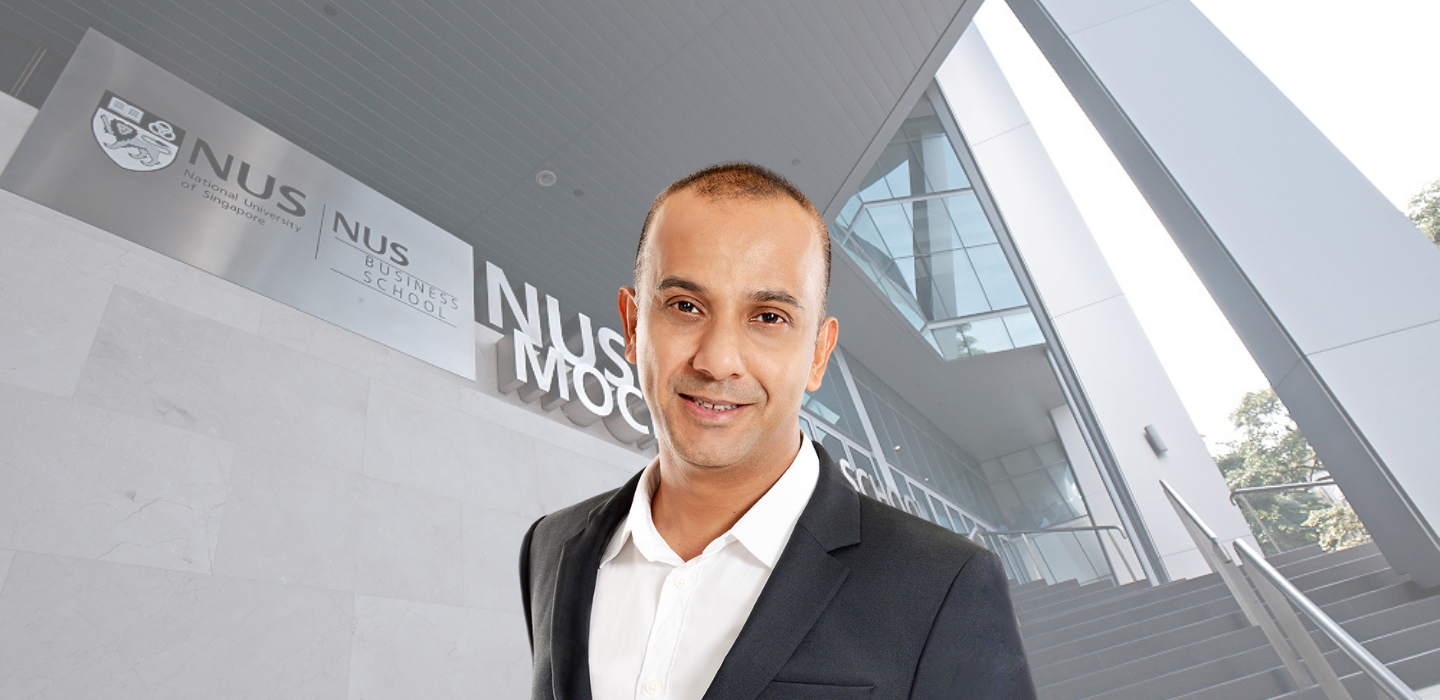It took Ashish Poddar (UCLA-NUS EMBA 2018) a tasting session for a small group of six acquaintances to confirm that he could transform his passion for cooking into a private dining business.
Ashish, who picked up his cooking skills from his father, spent years entertaining his guests with his dishes before realising he could be a private chef. Ashish served the six with what he described as progressive Asian cuisine, resulting from his drive to experiment with the region’s traditional flavours. And thanks to guests’ positive feedback, Ashish founded private dining firm Chef’d Club.
Today, Ashish is on course to combine food and conversation into a unique dining experience for his clients. Continuing his signature progressive style, Ashish ensures his repeat clients only taste the same dishes once as he churns out his original creations.
Even the pandemic could not stop Ashish’s culinary journey; he simply created his dishes over the weekends and shifted to food delivery. “It was hard, I have to admit. Even when private dining was allowed, we made dinners where possible but with fewer guests,” said Ashish.
As Ashish ramps up his operations post-pandemic, he has been holding pop-up collaborations with restaurants and yacht dining sessions. The management skills he acquired during his NUS EMBA — leading his small team, preparing a service experience and executing his marketing strategy – are now needed more than ever.
BIZBeat caught up with Ashish to get his thoughts on the UCLA-NUS EMBA programme and his plans.
Q: What made you decide to take up an EMBA back then?
The average length of work experience in my EMBA classmates had was 18 years. That speaks a lot. The EMBA helps you take a step back, find your core strength, identify the areas you want to refine and at the same time, see what new skills you would like to acquire, such as corporate finance, negotiations, leadership and service excellence.
Q: How has your EMBA experience helped your entrepreneurship journey?
The most important part of the EMBA is preparing me to be a leader. The chef is the orchestrator and needs to have his strategy. Collaboration and teamwork are keys to success, from giving some freedom and delegating tasks to taking feedback on challenges and constantly learning to improve things. Also, with guests, I learned to listen better; as a chef, I have my point of view, and it doesn’t hurt to triangulate some thoughts and perspectives from others. It took some time, but the experiences fine-tuned Chef’d Club’s service excellence and helped build the brand known today among the clients.
Q: What is one enduring memory of your time at NUS Biz?
It would be the commencement. You know you have finally achieved it once you wear that robe and hold your degree scroll in your hands. It comes with a lot of hard work.
Q: What does the future hold for you?
Here’s what I have visualised and how I hope the business will transform – I see the finest quality of food, coupled with service excellence, around a small array of tables.
If the future holds, Chef’d Club can achieve what no home-based business has ever achieved – becoming a platform where guests can enjoy dining, network and even close new deals.
Q: What advice do you have for those considering the NUS EMBA?
-You need to believe in that skill you have and work on strengthening it. I genuinely believe that each of us has that one strength.
-It will be very important to do some research to know where you want to be heading or need to head toward.
-Stumble, fall, but learn – don’t repeat your mistakes. It’s still a learning curve for everybody.
-And always have in place an alternate career path.




